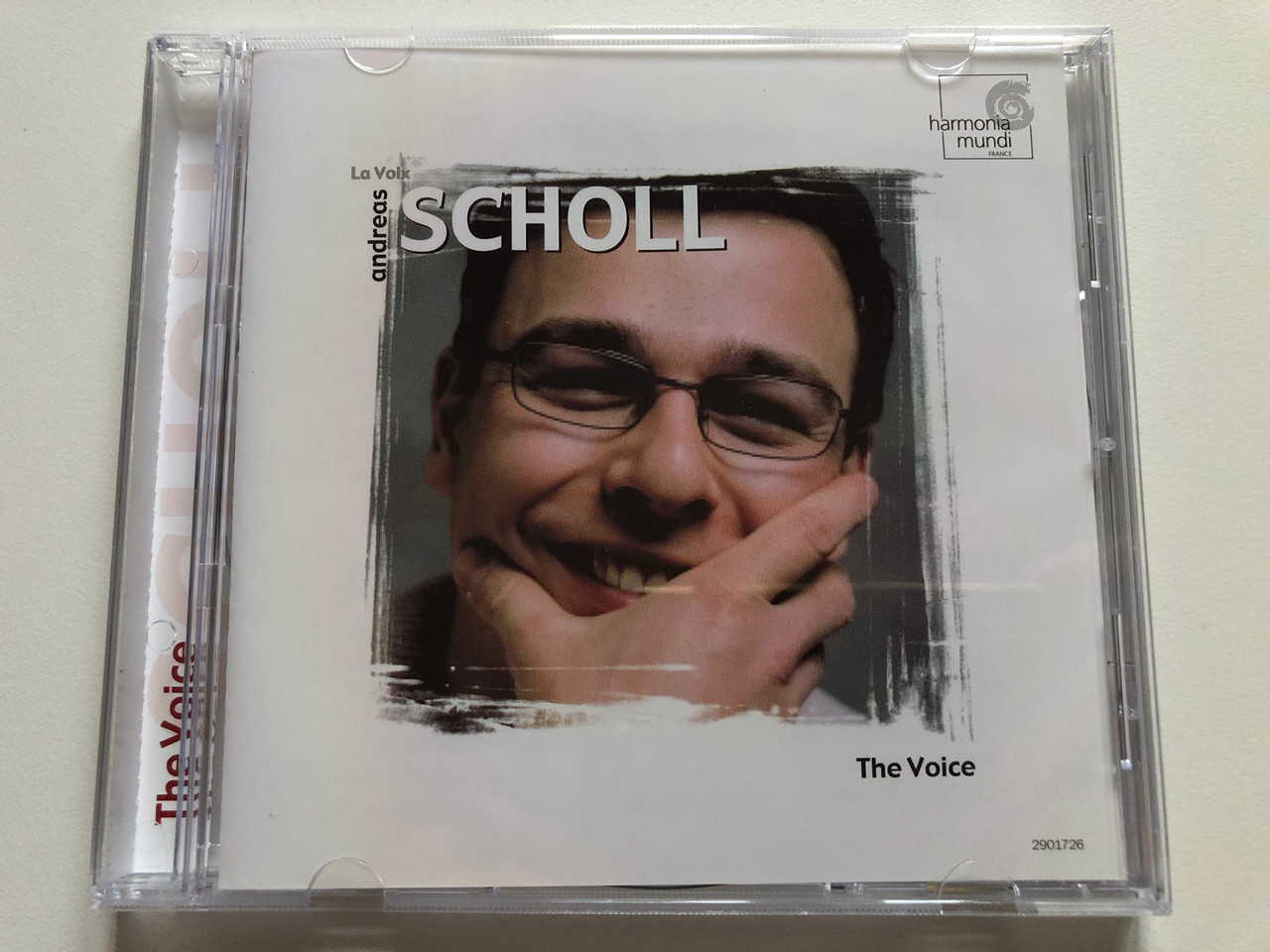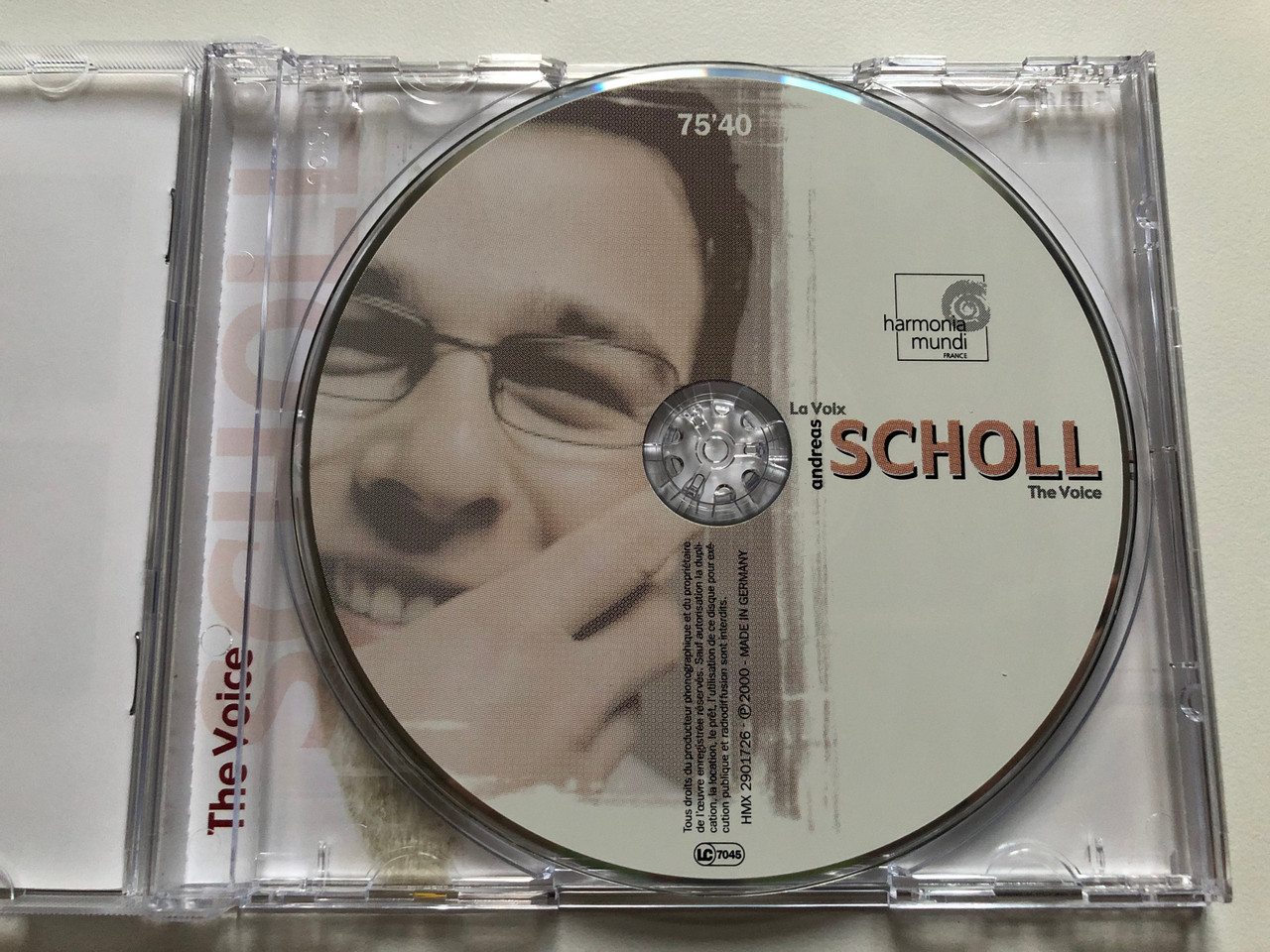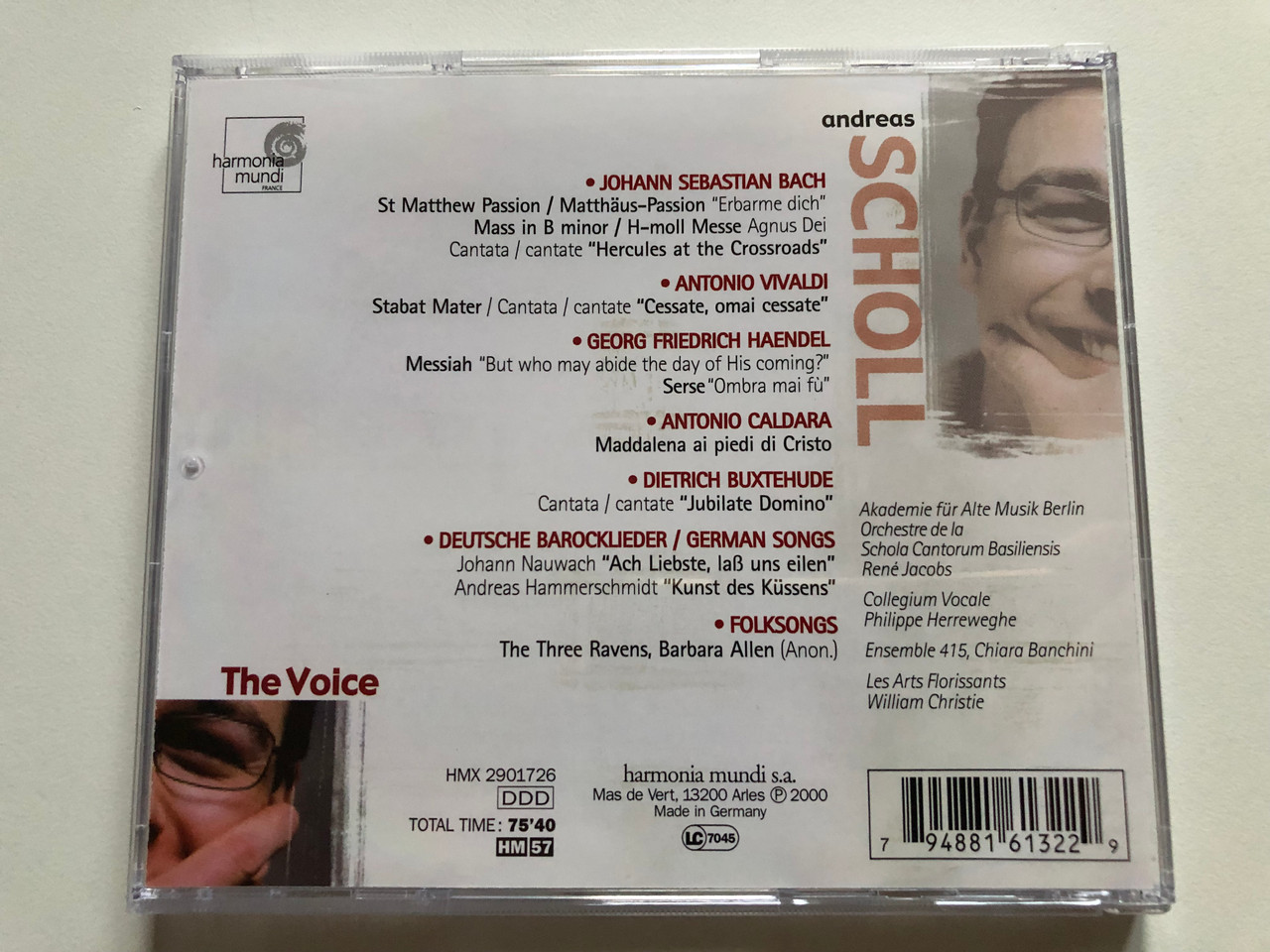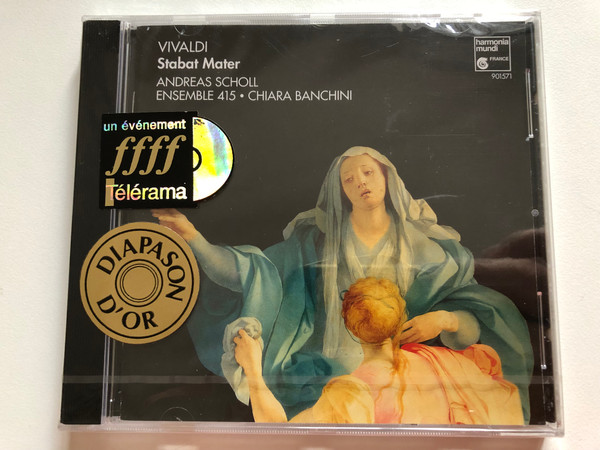Description
Andreas Scholl – The Voice / Harmonia Mundi France Audio CD 2000 / HMX 2901726
UPC 794881613229
Andreas Scholl (born 10 November 1967) is a German countertenor, a male classical singer in the alto vocal range, specialising in Baroque music.
Born into a family of singers, Scholl was enrolled at the age of seven into the Kiedricher Chorbuben boys choir. Aged 13, he was chosen from 20,000 choristers gathered in Rome from around the world to sing solo at a Mass held on 4 January 1981. Just four years later, Scholl was offered a place at the Schola Cantorum Basiliensis, an institution that normally accepts only post-graduate students, based on the strength and quality of his voice. He became an instructor at the Schola Cantorum Basiliensis in Switzerland, succeeding his own teacher, Richard Levitt. Since October 2019, he has been a professor at the Universität Mozarteum in Salzburg, Austria. This is his only position as a teacher now.
Scholl's early operatic roles include his standing in for René Jacobs in 1993 at the Théâtre Grévin in Paris, where he caused a sensation. His major roles, such as his debut at Glyndebourne in 1998 as Bertarido in Handel's Rodelinda, a role he reprised at the Metropolitan Opera in 2006, were written for the 18th-century alto castrato Senesino.
The bulk of Scholl's recording career has been with Harmonia Mundi and Decca, and his CDs are among Harmonia Mundi's best sellers. He has worked with most contemporary Baroque specialists, including William Christie and Philippe Herreweghe, and is himself a songwriter and composer of ballet and theatre music, with his own professional sound studio.
| Label: | Harmonia Mundi France – HMX 2901726 |
|---|---|
| Format: |
CD, Compilation
|
| Country: | Germany |
| Released: |
2000 |
| Genre: | Classical |
| Style: | Baroque |
Tracklist:
| Folksongs And Lute Songs (Anonymous) | |||
| 1 | The Three Ravens | 3:20 | |
| 2 |
Barbara Allen |
|
3:07 |
|||
| Georg Friedrich Haendel (1685-1759) | |||
| 3 | Messiah. Air: "But Who May Abide The Day Of His Coming?" |
|
4:39 |
|||
| 4 | Sinfonia | 1:13 | |
| 5 | Recitavo: "Fronti Tenere" | 0:39 | |
| 6 | Aria: "Ombra Mai Fù" (Atto I, Scena 1) |
|
Antonio Vivaldi (1678-1741) Cantate "Cessate, Omai Cessate" Rv 684 |
|||
| 7 | Largo E Sciolto: "Cessate, Omai Cessate" | 1:59 | |
| 8 | Larghetto & Andante Molto: "Ah Ch'Infelice Sempre" | 5:15 | |
| 9 | Andante: "A Voi Dunque Ricorro" | 1:15 | |
| 10 |
Allegro: "Nell'Orrido Albergo Ricetto Di Pene" Ensemble 415 |
|
3:39 |
|||
| Johann Sebastian Bach (1685-1750) | |||
| 11 | Messe En Si Mineur. Agnus Dei |
|
6:30 |
|||
| Antonio Vivaldi (1678-1741) Stabat Mater (Extraits/Excerpts) | |||
| 12 | "Eja Mater, Fons Amoris" | 2:44 | |
| 13 | "Fac Ut Ardeat" | 1:39 | |
| 14 | "Amen" |
|
1:01 |
|||
| Antonio Caldara (C.1670-1736) Maddalena Ai Piedi Di Cristo | |||
| 15 | Recitativo Amor Celeste: "Di Miei Dardi Possenti" | 0:36 | |
| 16 | Aria Amor Celeste: Da Quel Strale Che Stilla Veleno" |
|
6:58 |
|||
| Dietrich Buxtehude (1637-1707) | |||
| 17 | Cantate "Jubilate Domino" |
|
8:41 |
|||
| Deutsche Barocklieder | |||
| 18 | Ach Liebste, Laß Uns Eilen |
|
3:05 |
||
| 19 | Kunst Des Küssens |
|
2:05 |
|||
| Johann Sebastian Bach (1685-1750) "Hercules Auf Dem Scheidewege" (Hercule A La Croisée Des Chemins) | |||
| 20 | Aria Hercules: "Treues Echo" |
|
6:39 |
||
| 21 | Matthäus-Passion. Aria: "Erbarme Dich" |
| 6:38 |
- Composed By – Andreas Hammerschmidt (tracks: 19), Antonio Caldara (tracks: 15, 16), Antonio Vivaldi (tracks: 7 to 10, 12 to 14), Dieterich Buxtehude (tracks: 17), Georg Friedrich Händel (tracks: 3 to 6), Johann Sebastian Bach (tracks: 11, 20, 21)
- Countertenor Vocals – Andreas Scholl



































